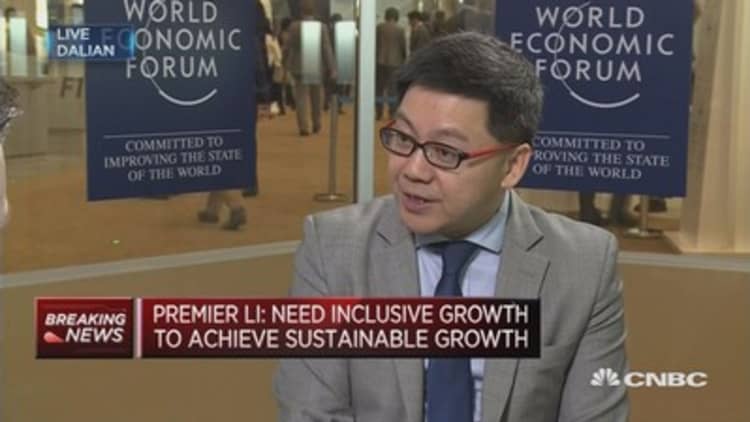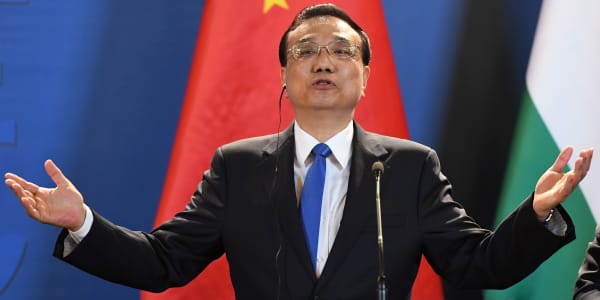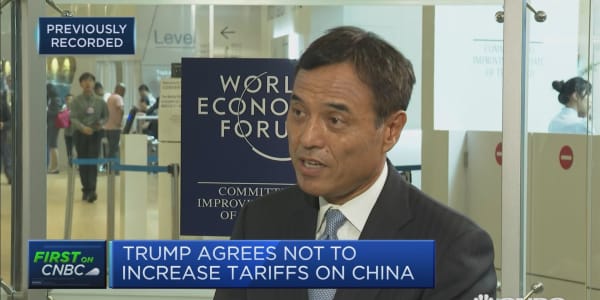
China's government and companies are "rationalizing" their use of debt amid concerns over growing leverage on the mainland, Eugene Qian, chairman of UBS' China strategy board, told CNBC's "Street Signs" on Tuesday.
"Over the period of high growth, the Chinese economy and in particular the corporate sector has accumulated a large amount of debt," Qian told CNBC on the sidelines of the World Economic Forum's "Summer Davos" event in Dalian, China.
"However, I think the way the Chinese are tackling this, both the government and I think the corporate sector, is 'let's look at the ways to rationalize,'" he said. "Everyone seems to realize that you cannot grow purely on the back of the debt or debt burden increase."
Qian also noted that it was "good news" that the Chinese don't rely on external debt much, using domestic funding supported by the country's massive savings instead.
Concerns over China's debt load have been growing.
In a note on Monday, Nomura estimated that China's outstanding non-financial sector debt hit 191.3 trillion yuan ($27.96 trillion), or 251 percent of gross domestic product (GDP) in the first quarter, up from 158.3 trillion yuan, or 231 percent of GDP, at the end of 2015.
Last month, Moody's Investors Service expressed concern that China's effort to support economic growth would spur higher debt levels, and the ratings service downgraded the mainland's sovereign credit rating to A1 from Aa3, changing its outlook to stable from negative.
Moody's estimated that the government budget deficit in 2016 was "moderate" at around 3 percent of gross domestic product (GDP). But it expected the government's debt burden would rise toward 40 percent of GDP by 2018 and 45 percent by the end of the decade.
Official data put total government debt at the end of 2016 was 37 percent of GDP, the Institute of International Finance said in a May note.
Qian noted that Chinese companies looking for overseas investments were becoming more circumspect.
"The corporate sector will continue to go out acquiring international assets, but they will do so in a more rational, commercial [way] and let the market decide which are the sectors Chinese companies are best equipped to buy," without overpaying, he said.
Qian said UBS was still seeing a rise in the number of deals by Chinese companies seeking overseas investments, but that the ticket size was becoming smaller.
"You will no longer find $10 billion to $20 billion kind of headline-grabbing deals. But we have come across is a couple of billion dollar type of deals which really support the Chinese economic focus," he said.
Qian said the deals tend to be in the high-end manufacturing, tech-media-telecom (TMT) and consumer sectors, particularly in segments where Chinese consumers have a high expectation of quality.
"Chinese companies, in order to satisfy this area of customer demand are needing to continue to search for the right acquisitions," he said.






